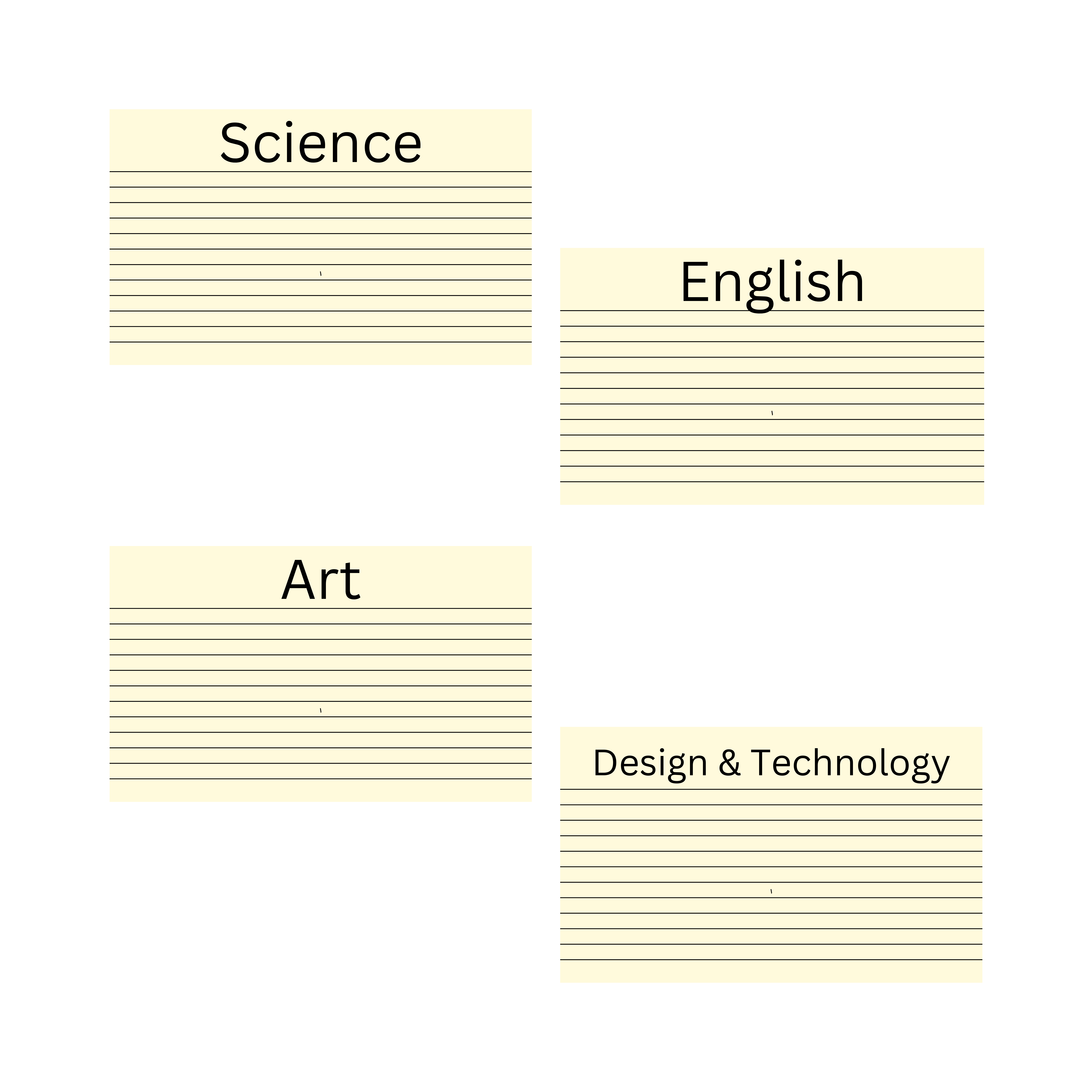Join me...
This site displays advertisements and I may receive a small commission if you interact with them.
GCSE Revision Success: Advice for Parents
Hi,
I’m Alix and it’s my mission to get as many of the next generation as possible working in jobs that meet their passion and purpose, making them happy and fulfilled adults. This starts with the results of their GCSEs, the grades they achieve opening doors for the next stage on their career path.
So, grab a snack and join me today as we ‘discuss’ navigating how to provide the support your child needs during their GCSE revision journey.

The General Certificate of Secondary Education (GCSE) exams are a significant milestone for your child. Success will open opportunities for them and give them the conviction to take their next steps with confidence.
Their school and teachers want them to do well, not only for the student but so that their success reflects well on them and the school. Teachers, themselves, are also put under pressure to meet targets and, with the expansion of the internet, results are freely available to all with just a click.
This can, of course, lead to pressure being put on your child but, knowing they have your full support, they’ll have the confidence they need throughout this journey.
There are several things you can do to show this support though, as a parent myself, can I suggest that you start on some of the hints and tips below as soon as possible
Open communication…
Firstly, it’s essential to maintain open lines of communication with your child. Encourage them to share their aspirations and any concerns and fears they might have as soon as these rear their ugly heads.

By actively listening and offering guidance in a relaxed and coffee and cake scenario, you can break down their anxieties and provide valuable support, protecting their mental health. Keep the conversations calm and matter of fact, rather than emotional, but let them know they’re not alone and you’re right there beside them every step of the way.
Also listen to the words they use. It could be that your child is worrying but wants to hide it because all their friends seem to be coping, so, by concentrating on any underlying issues, you’ll nip them in the bud sooner.
Make sure they know that you only want them to do their best, not break records. While getting A*s would be great, not every child can do this, and it should never make them feel under pressure from you to achieve that or come at the expense of their mental stability.
Not every child can be a brain surgeon - some are more suited to support those more academic than themselves and that’s a fact. Brain surgeons need support staff around them, valuable staff who are the cogs that give them the freedom to concentrate without the worry of not having the right (pristine) tools beside them or a dirty floor beneath them.

Support effective study habits…
As soon as they start their GCSE years, assist your child in developing effective study habits.
Encourage them to create a study schedule that includes dedicated time for each subject, incorporates regular breaks and help them stick to it.
Note: this is not something I would recommend to everyone, but my own daughter studied for her GCSEs via an online school. This allowed her to record the lessons. Sitting with her in the evening coming up to her exams I was listening to her science lessons and, to be perfectly blunt, the teacher’s strong accent made it almost impossible to understand what she was saying. Even with the benefit of being able to listen to it over and over, the time wasted on comprehending her was tortuous. I discussed it with my daughter who had the same problem so, having reviewed her long-term career plans, I told her it was not essential for her to get high grades in this subject and, as such, advised her to concentrate on her other lessons which were important to her future as there wouldn’t be time to tackle it with the exams so close. As I say, this approach is not for everyone and I don’t actually recommend it, but I truly believe it was the right decision at the time. As I told her, if circumstances or her career aspirations changed, she could always study the subject later, when she wasn’t under pressure with all her other exams.

The lesson really is that it’s best for your child if you know what’s happening. Take time out to talk to them – in an oh-so-casual way. I should have been aware of the issue much, much sooner.
It’s not about avoiding challenges but making sure they can manage them. You’ll also be teaching them a valuable life lesson of what to concentrate on where there are obstacles.

Go through with them which exams are more important to their future than others. If they need, say, 3 passes for (whichever) subjects to go on to sixth form or college, these should take priority. Not to the exclusion of all the others, but they are the critical ones to master.
Hopefully your child read my book ‘I am Choosing my Options’ (if not, see if the school has a copy). The book goes into great detail about how to choose the subjects that inspire them. The ones they almost ‘skip’ into the lesson to see what they can learn today. These are the choice ones. There are also core subjects that are compulsory, but these give them the tools they need to live a well-rounded adult life.
Go through with them which exams are more important to their future than others. If they need, say, 3 passes for (whichever) subjects to go on to sixth form or college, these should take priority. Not to the exclusion of all the others, but they are the critical ones to master.
Hopefully your child read my book ‘I am Choosing my Options’ (if not, see if the school has a copy). The book goes into great detail about how to choose the subjects that inspire them. The ones they almost ‘skip’ into the lesson to see what they can learn today. These are the choice ones. There are also core subjects that are compulsory, but these give them the tools they need to live a well-rounded adult life.

Silence…
Definitely provide a quiet and conducive study environment at home, free from distractions.
Encourage them to turn off their phones during this period and limit noise where possible. A calm atmosphere will help, not only to help them study now, but prepare them for when they take their exams which, if they’re still the same as when I was at school, are held in a large room with rows of desks separated and where you could hear a pin drop. The atmosphere was oppressive and cold, so gently coach them in what to expect with no drama, just (again) oh-so-casually and you’ll be giving them the best preparation tools you can.

Provide resources and tools…
Equip your child with the necessary resources and tools to aid their revision.
This can include textbooks, revision guides, access to online educational sites and past papers.
Encourage them to utilise these resources effectively and help them organise their study materials from the start. Develop study materials that suit their learning style

Traditionally, these ideas include: summarising key concepts; creating flashcards for quick review; and compiling concise notes.
Popular techniques also include quizzing them on key points, spaced repetition (reviewing material at regular intervals) and switching between different subjects or topics.
But your child could work better with visual aids such as mind maps or diagrams to help them understand and assist in memory retention.
If they have a list of facts to learn, encourage them to set them out in a way that makes it easier – turn them into a poem, a song, a rap.

Have fun, while experimenting with various techniques to find what works best for them.
The process of creating study materials itself can enhance their understanding of the subject matter. As children we’re taught using repetition, so the more ways you explore will be revision in itself.
Adopting a combination of techniques could also enhance comprehension and long-term retention while making it interesting.
And once they find techniques that work for them encourage them to go for it!
Collaborate with teachers…
Maintain regular contact with your child's teachers.

Attend parent-teacher meetings to understand their progress and any areas for improvement needed. Understand which subjects could need more studying for – ie the critical ones that they need to follow their (current) envisioned career path.
Being aware of what is going on at school will enable you to have informed discussions with your child about their study priorities.
Discuss concerns and seek advice on how to support your child's learning at home.
If revision classes are offered encourage your child to take advantage of them, they’re set up for them.
Collaboration between parents and teachers can create a strong support system.
Study the exam structure…
Familiarise your child with the structure of GCSE exams. Go through past exams for each subject they’re studying with them. See my article ‘Cracking GCSE exams’ for how to dissect exam papers and prepare them as much as possible.

By making them familiar with each subject’s exam format, when they sit down to sit the exam, this familiarity will make them seem a lot less scary on the day.
If you can work in doing this as though they were actually taking the exam it will, again, mentally prepare them for the exam environment.
Help them to understand the marking system and how 5 marks means the examiners are looking for 5 salient points, while 1 mark means just one. Teach them to underline the points that must be answered so they remember to do so.
Show them how to answer the questions using subject-specific terms where possible.

Explain that, if they get stuck on one question, moving on is the smart move. Struggling with a question that has one mark assigned to it, could use up valuable time in answering other questions that they don’t struggle with and more than make up for that one mark. Guide them not to waffle.
Note: Again, using my daughter as an example, she was upset when she got an extremely low mark on one particular subject during an end of term test. It turned out she’d got stuck on one question and sat there trying to work it out as the minutes ticked by. To be honest she learnt a very valuable lesson that day and once she understood what had happened, she accepted the mark and moved on, acing the next test.
Remind them they can come back to difficult questions later if time permits. Answer the ‘easy’ questions first picking up their marks, then run through the exam again.
Speaking of time, another valuable piece of advice is to show them how to allow time to complete the exam. Like I said, teach them not to waffle, but keep an eye on the clock while going through past exams so they get a rhythm.

Provide emotional support…
Your child is likely to experience stress and anxiety during their GCSE revision period, especially at mock exam times and as the exams themselves approach.
As schools and teachers are judged on results it’s possible they’ll pass the pressure they’re under onto their students, if unintentionally as the exams near. Keep an eye on your child.
Offer additional, emotional support (casually) where your child needs it. Keeping it calm you’ll get through to them that exams are important, but not end of the world. You know your child, you can steer them clear of pressure points, so do so.

Perhaps remove any chores to allow them to stick to their study timetable, or give them more time as the exams approach, but make sure they then take breaks. Take them to a movie, or on a shopping trip to celebrate their commitment, anything that says ‘I’m so proud of you. It doesn’t matter what results you get, I’m still proud of you.’
Promote healthy habits…
Ensure your child maintains healthy habits during the GCSE period.
Encourage them to prioritise sleep, eat a balanced diet, and engage in regular physical exercise.

These habits will contribute to their overall well-being and optimise their ability to focus and retain information while protecting their mental health.
Manage expectations…
Manage both your own expectations and those of your child. Encourage them to do their best but don’t push.
Avoid placing undue pressure on them and focus on their effort, progress, and personal growth rather than solely on grades.
Celebrate effort and achievement…
Acknowledge and celebrate your child's efforts and achievements throughout their GCSE journey.
Doesn’t have to be expensive, just a well-done card, a wrapped pack of their favourite snack/sweets or perhaps money to go to the cinema with a friend.

Offer words of encouragement and small rewards to motivate them along the way.
Recognise their hard work, perseverance, and dedication.
Wrapping it up…
As a parent your support and guidance are vital to your child's success. Giving them plenty of both will protect their mental health while showing support.
By fostering open communication, understanding the exam structure, supporting effective study habits, providing emotional support, collaborating with teachers, offering resources and tools, promoting healthy habits, managing expectations, and celebrating effort, you can help your child navigate this important educational milestone with confidence.
And, of course, you’ll be instilling valuable life skills at the same time: how to spot important information (to answer on the exam); how to allocate the right amount of time to important procedures; how to shut out distractions and concentrate; when it’s important to turn off a mobile and focus on the event in hand, to name a few.
But always remember to emphasise their well-being and personal growth, as these are truly just as important as exam results.
I’d love to hear how you’re getting on and, where possible, if we can help more.
Lastly, I wanted to both wish your child luck and say that I know they can do it.
Success is within their grasp - good luck!
